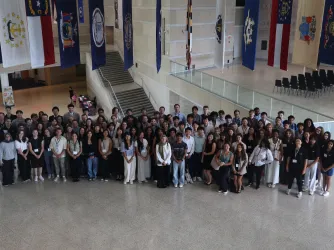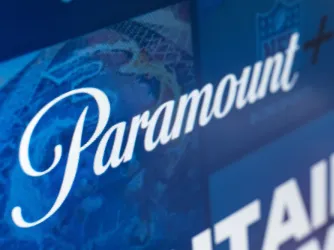Table of Contents
Strike Two for University of Iowa President Sally Mason

Two weeks ago, the University of Iowa (UI) forced artist-in-residence Serhat Tanyolacar to take down his statue of a Ku Klux Klan robe and hood made up of newspaper articles chronicling acts of racial violence. Although the artist intended the piece as anti-racist social commentary, some students found it threatening and called for its removal. UI added insult to injury when it apologized to those who were offended without acknowledging Tanyolacar’s First Amendment rights. Since then, FIRE and the National Coalition Against Censorship have explained to UI in a letter and subsequent press release how the university’s reaction betrays UI’s fundamental mission as an institution of higher learning.
Yesterday, UI President Sally Mason doubled down by issuing a self-congratulatory message to the campus that not only didn’t back down from the university’s censorship but also seemed to promise more in 2015:
We have much to be proud of here at the University of Iowa, including our cherished traditions of free speech and open dialogue, as well as our long history of being a welcoming campus. The university must foster an inclusive educational environment, one that is open to all points of view—and one in which people from all backgrounds are welcomed and respected.
Our history of inclusiveness and freedom of expression is rich and goes back to the founding of this remarkable institution. The history that we have to draw upon will provide the direction we need as we work together as a community moving forward. While our history may provide us with a framework, we must continue to realize these intertwined values of inclusiveness and freedom of expression in our work together.
In the best tradition of the “some of my best friends are…” defense that precedes an inappropriate remark, Mason seems to think she can disguise UI’s censorship by paying lip service to the First Amendment. But its fundamental purpose is to protect expression that is provocative—like Tanyolacar’s artwork—and that will not be popular with everyone. Expression that is widely popular generally needs no protection. Further, the Constitution does not create a right not to be offended. The First Amendment platitudes draping Mason’s call for a more “inclusive” campus climate (that, oddly enough, would exclude unpopular speech) should fool no one.
Given UI’s behavior thus far, the pledges in Mason’s statement—to be carried out by UI’s Chief Diversity Officer—should make students and faculty very wary:
Today, I announce that before the next semester begins, we will:
- Create clarity in the procedures that surround the use of public space for public expressions, including the prompt removal of unauthorized displays on campus.
- Review our orientation procedures for new and visiting members of our community to identify opportunities to better acquaint them with relevant policies.
Call me cynical, but I have a hunch that “clarity in the procedures” might be code for restricting expression someone might not like. And how “better acquaint[ing]” new faculty with these restrictions will square with academic freedom is anyone’s guess.
Mason ends by “call[ing] on the campus community to review all of our efforts.” Yes, members of the UI community (and everyone else), please keep a very close eye on what UI does next. FIRE, for one, will be eyeing the situation like a hawk.
Recent Articles
Get the latest free speech news and analysis from FIRE.

In Philly, a new generation finds it voice — and the tools to defend it

Say it with a song

Will free expression make a comeback at Haverford College?
